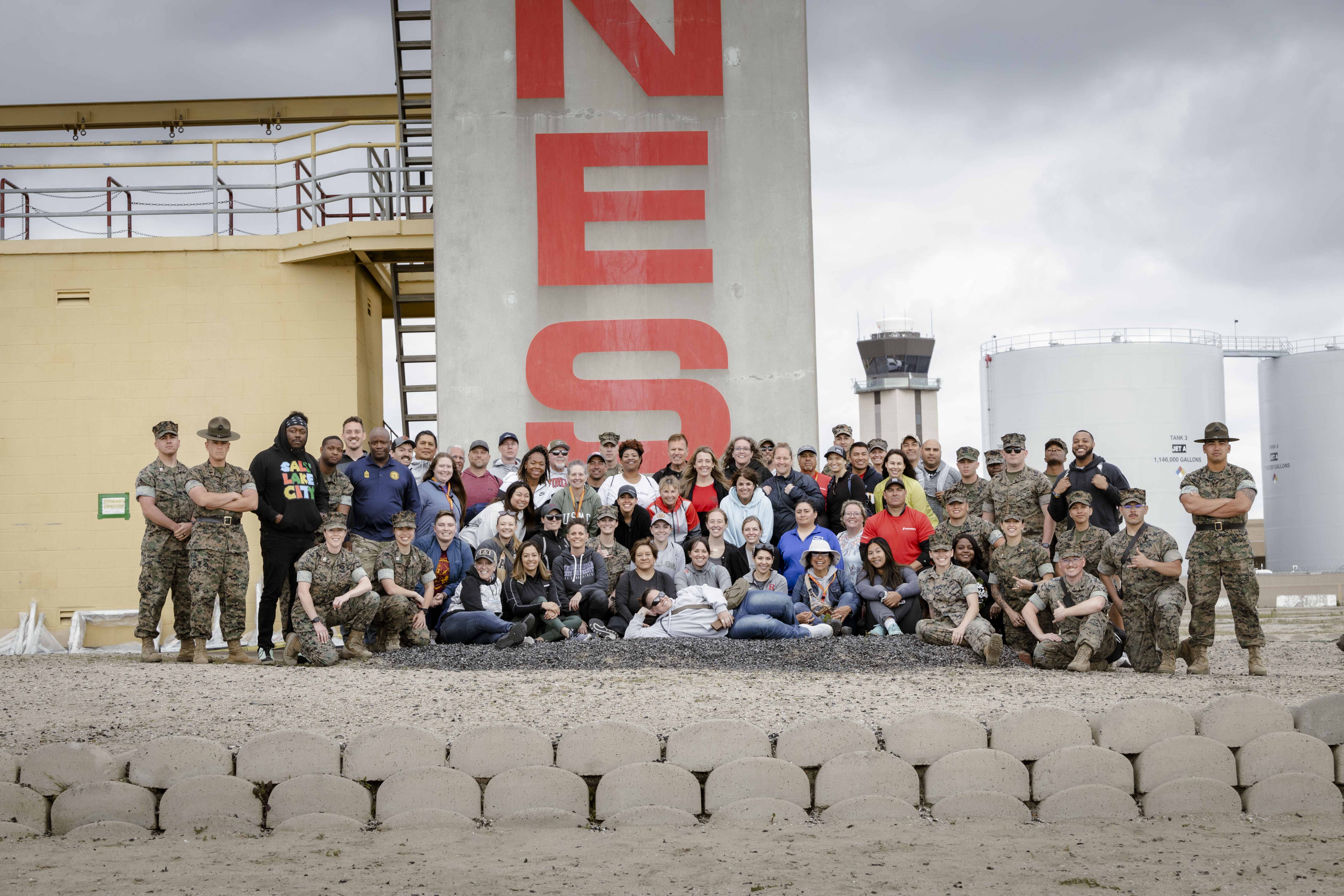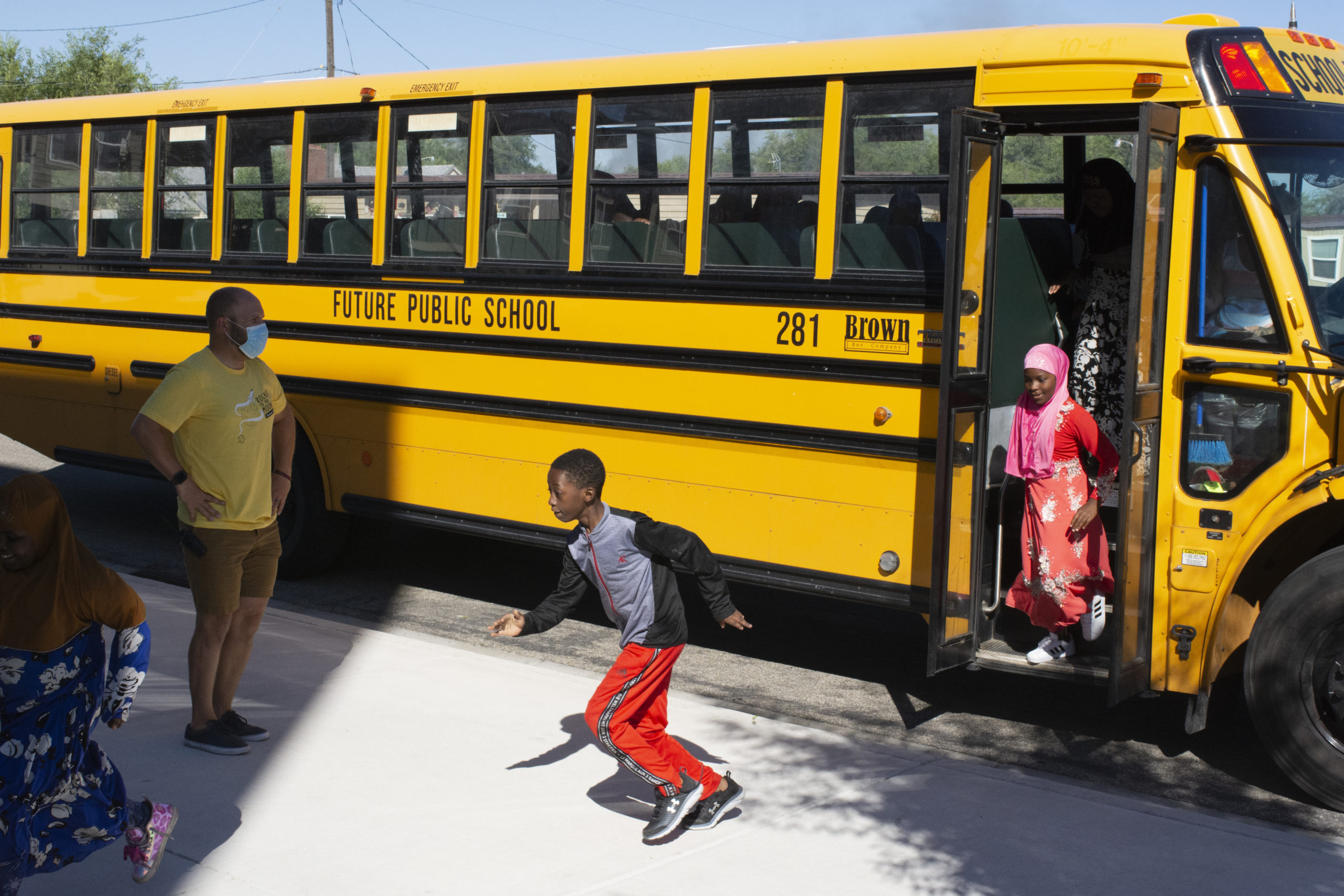
Bridging the COVID-19 Learning Gap
“We Want to Support Families”
Compared to last summer, Idaho Arts Charter School summer programming took a different approach. Last year students attended an art-integrated camp, while this year, the focus is on reading and math for grades K-8.
Lauren DeNinno, Vice Principal of the Secondary Campus and Head Administrator of the summer program, said the Nampa-based public charter school wants to help the kids who fell behind and prepare students for the next grade level while “bridging the gap COVID created.”
“The kids were really happy to be here. Day one they were smiling — excited,” DeNinno said. “I think they just haven’t gotten that full in-person experience during the past school year so it was just nice to keep bringing them back and have that consistency.”
The school is providing two, six-week sessions for 200 students with equal access — including free and reduced meals, transportation, and devices for students. It is completely free for students to attend.
Executive Director Jackie Collins said they have been putting in as much work as they can to help these students.
“I try to make sure that my teachers and my board, everybody, try to realize that not everybody’s family has equal time and resources to support remote learning,” Collins said.
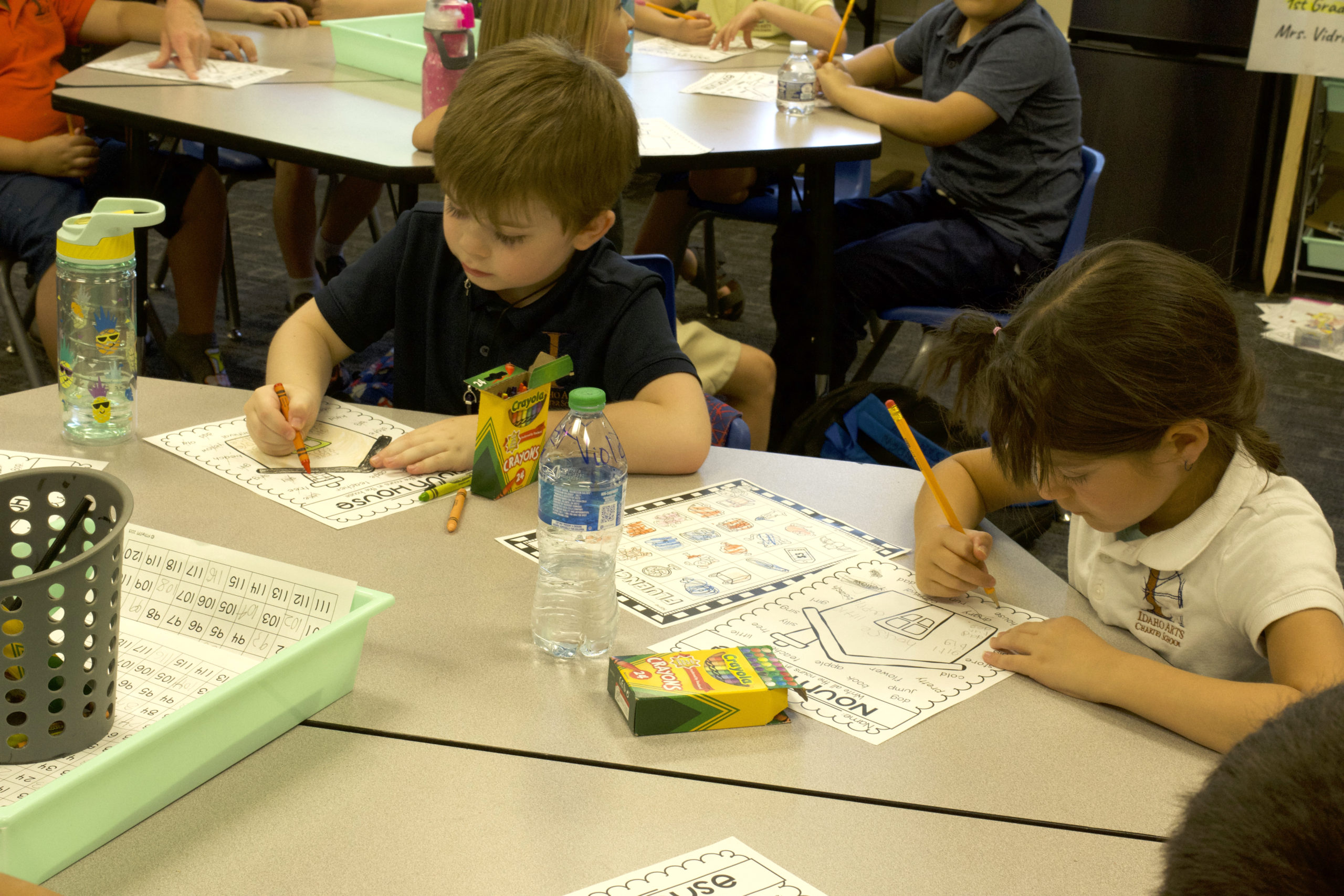
One Special Education Teacher, Jennie Cihigoyenetche, is teaching fourth grade over the summer. She said it’s been a great experience to teach to different students’ needs to help them be successful.
“All students need something different from us as teachers and it has been really fun to get to know them, how they learn and see some a-ha moments along the way,” Cihigoyenetche shared. “I try to connect with each student and really feel like it is a gift when I have earned their trust and been able to teach them something new…”
While students are focusing on academics, DeNinno said they wanted to maintain a fun and positive learning environment. She said students can earn Phoenix Flair tickets for a daily prize drawing, a nice note home, and even a Roaring Springs Day-Pass when they “show good learning traits or are working hard.” The class with the highest attendance at the end of each session will earn a popsicle party.
Collins said they have been using federal and state money to address learning loss at Idaho Arts, including ESSER funds and money from the Governor’s Learning Loss Grant. She said with that money, schools didn’t have to do a summer program, but she decided they should do some good with the additional funding.
“I feel very fortunate we are able to offer this opportunity and we’ve got some great teachers. And I think our families are super happy,” Collins said. “A couple hundred kids that we are able to reach — so that’s a big deal.”
“The Summer Slide is a Very Real Thing”
Students at St. Ignatius Catholic School in Meridian usually have the summer off, but this year some students got the opportunity to continue their learning remotely with the Idaho Digital Learning Alliance (IDLA).
Principal Andi Kane at St. Ignatius said they decided to offer summer learning this year due to learning gaps created by COVID. She said Catholic schools across the Treasure Valley are partnering with IDLA to provide the program.
“I want students to come back to school confident about their learning,” Kane said. “If they can come in feeling successful about learning gains, then that sets them up for success for the rest of the year.”
With the help of the Roman Catholic Diocese of Boise, Kane said the school was able to offer reading and math classes to K-5 students who would benefit from the additional support. Each of the six Catholic schools in the Treasure Valley have their students participate.
Katelyn Smith is helping with the program this summer and has done community outreach to connect families with the program. She proctors exams, enrolls students in classes and makes sure students are on track. During the school year she works the front office and teaches Student Leadership at St. Ignatius.
But she is also a mom.
“My son is actually doing the program, so it’s kind of nice to be able to work along with it, so I understand if it’s working and if it’s a thing we should do again,” Smith said. “It’s so much nicer to tell families ‘Hey this is what you can count on. This is what it’s like.’”
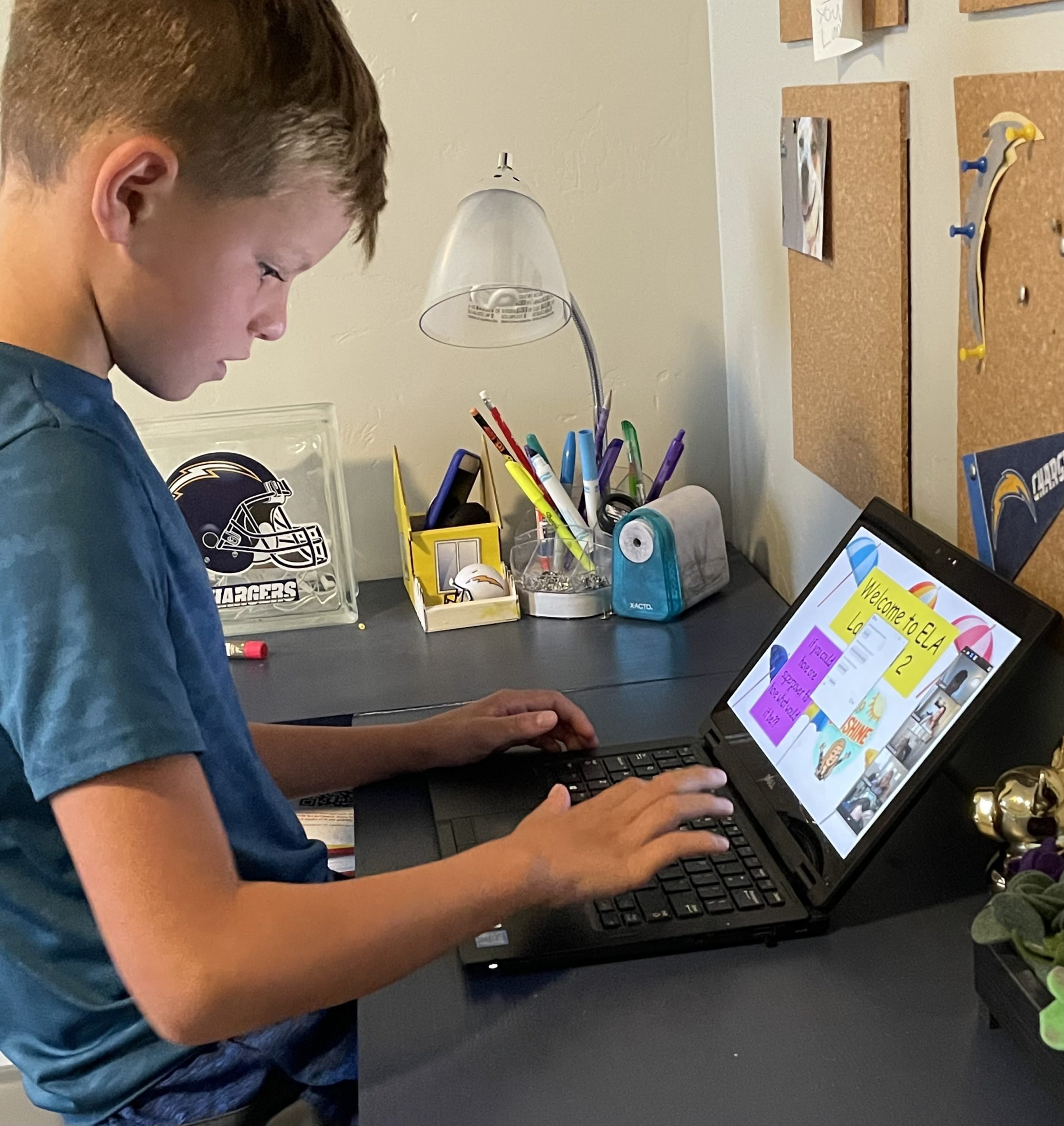
The program costs $30 and goes through the end of July. If students didn’t have devices at home, St. Ignatius provided them, along with the tech support on campus if needed.
Smith said her son is connected to a live teacher online, works on iStation (learning software), which tracks his progress, and is in class online with students from other Catholic schools.
“He gets to meet new and different kids,” said Smith. “It’s nice as a parent. I can sit and watch where he’s at and make progress. I don’t think many parents during remote learning — they got to see any of this.”
She said it has been great for their schedule and her son still gets to enjoy the pastimes of summer – going to the park, the pool and hanging out with friends. But being his mom, she knew he needed some additional reading support.
“Going into the 4th grade is hard, it’s a lot of reading and reports. For me, I don’t want him to get further behind, I want him to be more confident,” Smith said. “So, it’s important for me to provide him these opportunities but also show him how important this is.”
The program isn’t just available for students to improve their reading and math skills, Kane said. Four junior high students who were outpacing their regular math class are taking geometry over the summer through IDLA.
“We separately, from this opportunity, picked IDLA for these students,” Kane said. “They will finish a semester over the summer to then take algebra during the school year.”
Kane said she believes this program will create opportunities for St. Ignatius in the future where students can take other classes through IDLA such as Spanish and Biology.
Smith also said she sees the benefit of the program for students.
“The summer slide is a very real thing, it’s what happens every year and those kids on the border are the most vulnerable to falling even more behind and needing intervention services — so I think it’s really good for those kiddos,” Smith said.
“Kids Want to Be Here, They Want to Learn”
Students burst through the doors of their school bus with excitement. Met with equal enthusiasm by staff members, kids were thrilled to be back at Future Public School – their home away from home.
Future Public School in Garden City is focusing on boosting students’ skills in literacy, math and writing for their third summer of “Rocket to the Moon.” Co-Founder, Executive Director and Principal Amanda Cox acknowledged learning loss caused by COVID, and said the turbulence of this year has given them an opportunity to provide additional learning opportunities for students.
“All of our kids get an opportunity to be their best selves,” Cox said.
First grade teacher Paris Brockner said she is looking forward to building and continuing relationships with students over the summer.
“A lot of my kids were really sad about the school year ending. This last year was really tricky for them because they were torn away from their friends so many times,” Brockner said. “So, I think having a little bit more consistency will be helpful for them and just preventing that summer slide that happens with a lot of our kiddos.”
Cox said “Rocket to the Moon” represents their student population – where all students have equal access to attend the camp through scholarships, transportation, and meals provided by their community partner: The Boys and Girls Club.
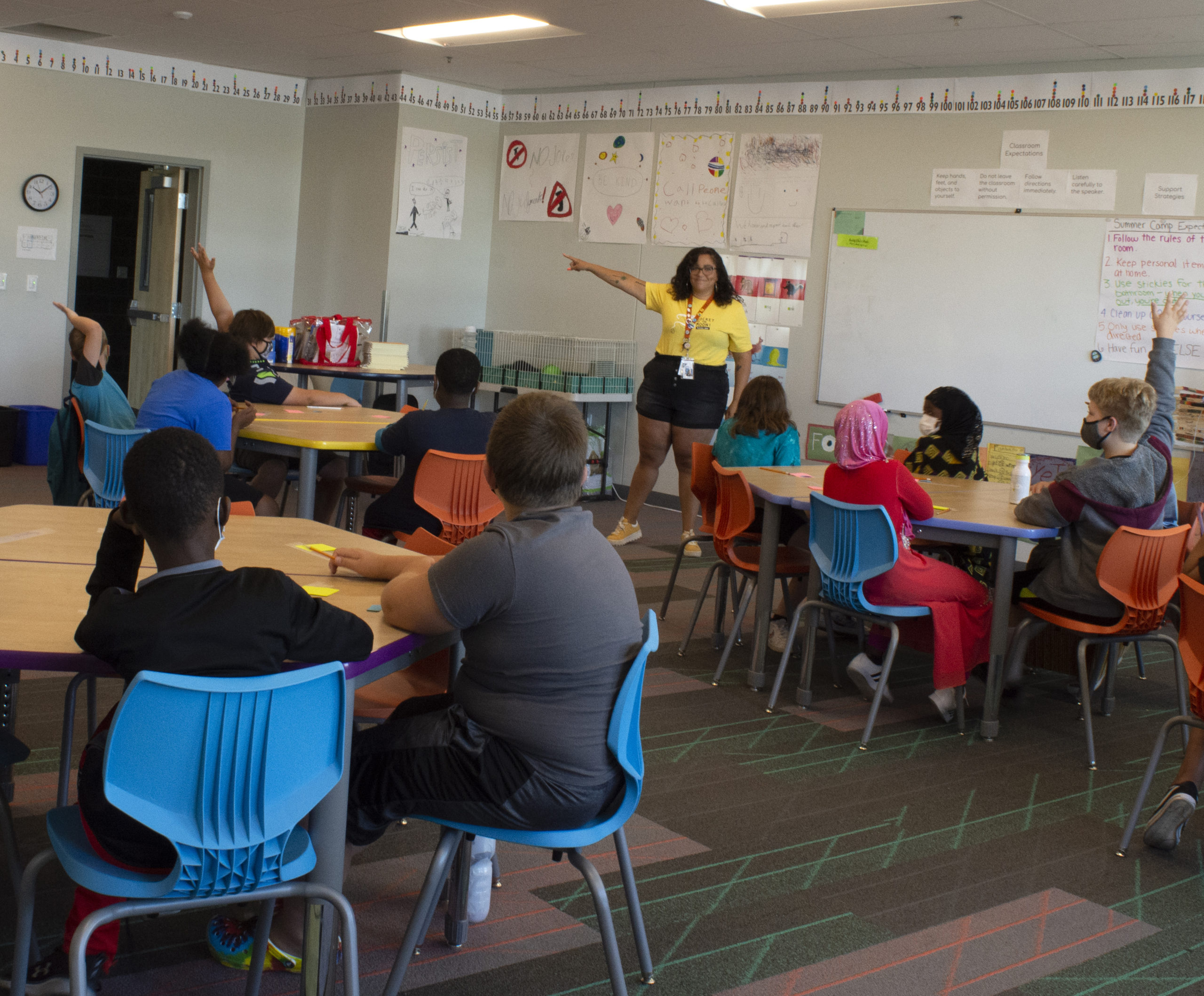
Future Public School funded the program using a combination of ESSER funds, Governor’s Learning Loss Grant funds, and a grant from the Louis C. Calder Foundation.
She said the equal access for students creates a safe environment for them where they know they will get lunch, be with friends, and just have fun.
“I think we are always in pursuit of ‘How can we work with families, what additional support can we provide to our kids on the path to their full potential,” Cox said. “I think for a lot of families, they want that for their own children too.”
Cox said the school is using curriculum developed by Impact Public Schools in Seattle to further engage students and boost their skills. Topic areas include The Arctic, Farm to Table and Westward Expansion. And while students are boosting their skills, they get to go on field trips and win fun prizes.
“In a lot of ways, we are trying to structure as much as possible what our kids know about a regular school day here and add in some sprinkles of field trips they can be excited about,” Cox said.
And Future Public School is a place students want to be, even over the summer.
“Kids want to be here. They want to learn,” Cox said. “They don’t want to leave.”
“Find Those Little Artists, Find Those Little Musicians and Athletes”
In Ammon, White Pine Charter School aims to connect students to enriching experiences with their peers over the summer. In their second year of summer programming, students are taking music, art and strategy games at the school’s summer camp. Board Chair EmmaLee Robinson said these programs are vital, this year more than ever, since “their [students] world was turned upside down because of COVID.”
“As adults we can talk about our frustrations or concerns, but kids don’t always get that opportunity. They hear information and process it on their own,” Robinson said.
Summer 2020 was the first year White Pine provided summer learning, to address interest expressed by parents to fill in learning gaps created by COVID. Last year was masked up and distanced. This year, because the COVID restrictions have eased, the students can focus on fully exploring new subjects and connecting with one another.
“I think our overall goal of the program is to provide a channel for them. To apply all the stuff they’ve learned, to learn new skills (they’re working on social skills), teamwork, and time management,” said After School Program Director, Alysa Trust.
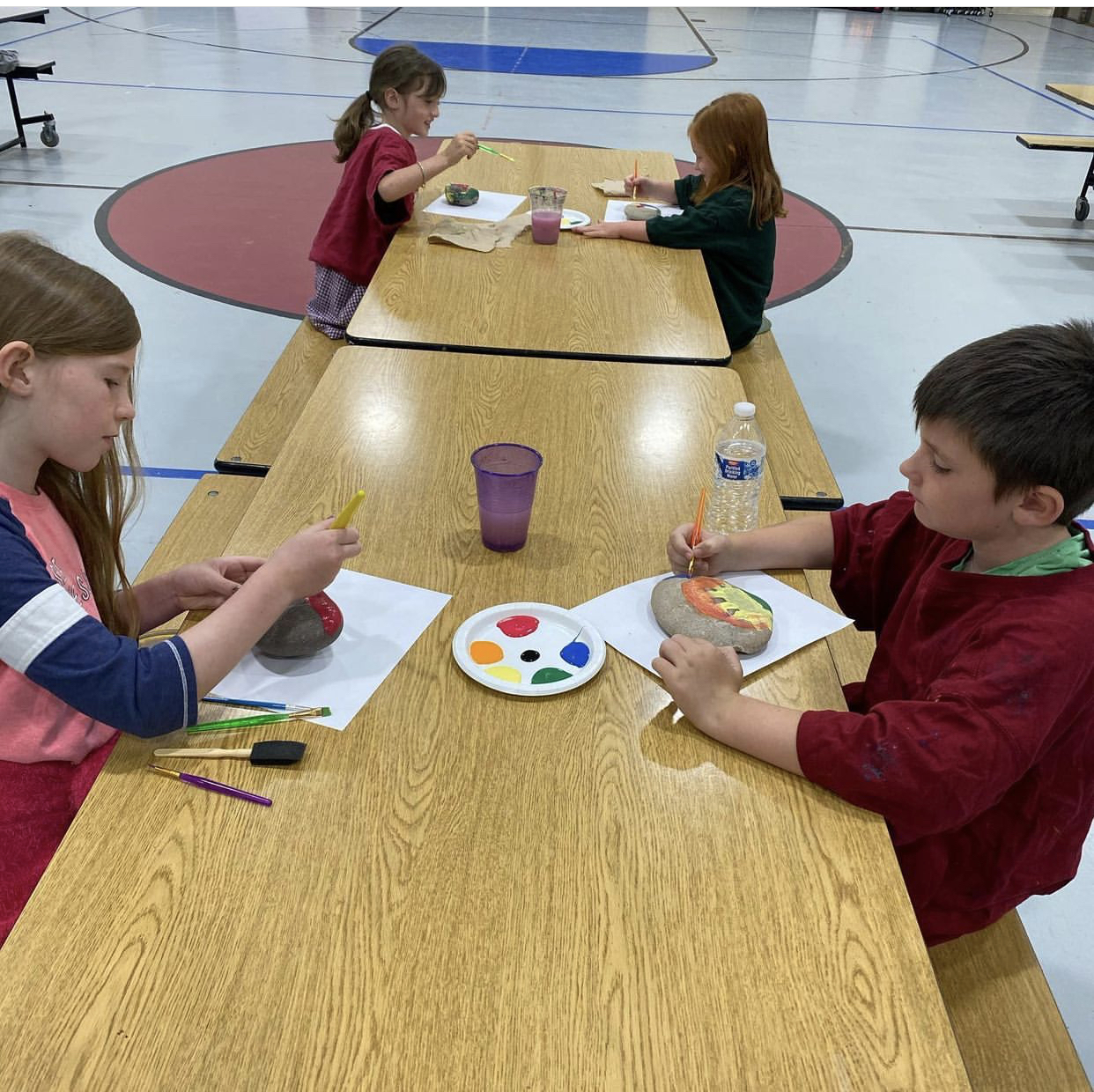
Trust, who also teaches first grade, said students have the option to attend multiple activities based on their individual interests including: Art, Basketball, Dance, Drama, Music, Ninja Warrior Camp, Soccer, STEM, Strategy Games, and Yoga. The summer program is being funded by grants from private businesses, student-led fundraising, and small tuition fees for each session.
Robinson said Trust picked out a perfect selection of classes to spark students’ enthusiasm for learning this year.
“We are so lucky to have teachers like Alysa Trust in our organization that see this need for kids to be together,” Robinson said. “She takes a whole new approach to the social and emotional needs of these kids.”
But this isn’t just an opportunity for students at the elementary school to enjoy some summer camp fun; White Pine is also including their high school students from White Pine STEM Academy.
The older students serve the school community and engage with their younger classmates as volunteer camp counselors and mentors. The older students choose to mentor for the subjects that they are most interested in. Trust said she aims to grow the program to become a formalized camp counselor program, so students can earn service hours for their college applications.
Trust said the summer programming is aligned with the school’s overall mission to find “success for every student.” This means providing the opportunity to explore subjects and interests beyond the school’s STEM focus.
“Our goal is to find those little artists, and find those little musicians and our athletes, our little STEM kids to rise and be successful,” Trust said.
—



